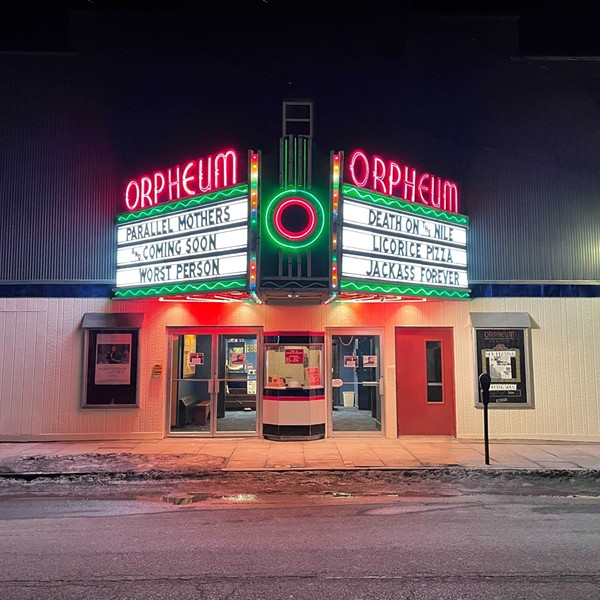The Messenger (Dir. Oren Moverman)
See interview with director
Ricky (Dir. Francois Ozon)
Audacious Ozon has distinguished himself internationally with fearless takes on sexuality and peerless empathy for female characters. Katie (Alexandra Lamy) joins his gallery of resilient, if errant, women. Her lusty romance with fellow factory worker Paco (Sergei Lopez) quickly settles into a stagnant domestic scene, but their new baby is anything but ordinary: Ricky has wings and Katie scrambles to keep the secret. Whether a parable on xenophobia, a fable of motherhood, or a satire on modern media, the film is alternately touching and grotesque. It may not ever gel, but Ozon flawed still outpaces most directors.
Stooge (Dir. Mickey Breitenstein)
A trio of foul-mouthed buddies expresses wonder as to why infidelity still puts women’s knickers in a twist. The dialogue suggests playwrights Mamet and Labute, yet the story ends too abruptly and warrants a fleshed-out redux.
White on Rice (Dir. Dave Boyle)
This loopy comedy has everything going for it: a nimble multicultural cast, an absurdist storyline and a sad-sack protagonist in the form of Hiroshi Watanabe as Hajime/Jimmy, a Japanese émigré who camps out with his Americanized sister in Salt Lake City to dull the pain of his own recent divorce. “My brother-in-law thinks I’m retarded,” he complains to coworkers, who are inclined to agree as Hajime fumbles every blind date that comes his way. Cowriters Joel Clark and Boyle have created a marvelous confection and Watanabe suggests Chaplin, Peter Sellers, and a bearable Adam Sandler. A winner.
DOCUMENTARIES
After the Storm (Dir. Hilla Medalia)
This film possess as much heart as Every Little Step, the smashing Adam Del Deo-James D. Stern doc about A Chorus Line. But After the Storm deals with higher stakes than mere show-biz aspirations; it’s about survival. A group of New York musical theatre veterans—James Lecesne, Randy Redd, and Gerry McIntyre—comes to New Orleans in 2007 to mount a production of “Once on This Island” to raise money to rebuild the St. Mark’s Youth Center. (The award-winning musical deals with a hurricane, and the producers cast school kids who are Katrina survivors.) During six weeks of rehearsals, we learn how these talented young people are rebuilding their lives. When your tears flow, they will do so deservedly.
Convention (Dir. A.J. Schnack)
This momentous achievement joins The Maysles Brothers’ 1960 classic Primary in the canon of films that dissect and illuminate the American electoral system. Certainly not a cinema verite work, Convention is the hyper-kinetic distillation of the work of 11 filmmakers under director Schnack who ceaselessly roved the 2008 Democratic Convention in Denver. The film pokes fun at the sometimes-clueless city officials who must cope with the mammoth event that drops into their backyard, the newspaper reporters on assignment and the diehard lefties intent on protesting. Sometimes cynical—the film shows martial law imposed on the city in the name of democracy—Convention ultimately betrays its own foggy-eyed joy when Obama is nominated. A stirring, fascinating look at the political process and required viewing for all school children.
Music We Are (Dir. Mirav Ozeri)
You have a soundboard seat as jazz avatars Jack DeJohnette, Danilo Perez, and John Patitucci mix it up at NRS Recording Studios in Catskill. While the creative process is never orally articulated to the point of demystification, you can watch the give and take of the musicians as they run through original compositions—“Tango Africa,” “Ode to MJQ,” and “Cahilo” among others—on piano, bass and drums. The mutual support and respect are undeniable.
Racing Dreams (Dir. Marshall Curry)
While the film’s title is a nervy nod to the sweeping Hoop Dreams, Curry’s hubris is warranted; his portrait of three go-kart drivers—Brandon Warren, 13; Annabeth Barnes, 11; and Josh Hobson, 12—exhaustively captures the sport as well as the drama of their personal lives by following the trio over many, many months as they grow from novices to top-seed competitors. Racing Dreams emerges as an indelible portrait of Middle America, including broken families, chronic poverty, drug addiction, and the dreams concocted and pursued out of necessity as an escape. Exhilarating and sobering.
















